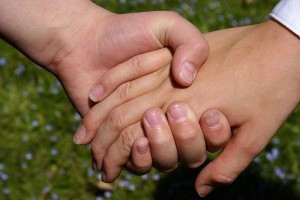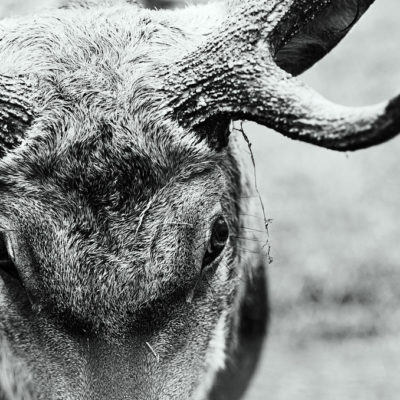When I first came to the path the Elders and teachers were the people that were deeply involved in the foundation of the modern Pagan  traditions. The Farrars, Maxine Sanders, Doreen Valiente, Philip Carr-Gomm, Vivianne Crowley, to name just a few. The internet was still making that horrendous modem noise on dialup. There were very few books available and even less teachers. It was obvious who the Elders were, and most often it was the people who had written books.
traditions. The Farrars, Maxine Sanders, Doreen Valiente, Philip Carr-Gomm, Vivianne Crowley, to name just a few. The internet was still making that horrendous modem noise on dialup. There were very few books available and even less teachers. It was obvious who the Elders were, and most often it was the people who had written books.
As time moves on and those Elders get, well, older, and in some cases begin to move on from this life, where are the Elders to take the flame? As I travel around the world with my music and I have the privilege to spend time in many communities I can see a varied attitude towards the new generation of Elders and teachers.
In the USA, for instance, the original Elders are again quite obvious but there is also a whole new wave of young teachers already sharing the flame lit by the likes of Margot Adler and Selena Fox, and I see these as regular speakers at Pagan festivals. Chistopher Penzak, T. Thorn Coyle, Teo Bishop, Jason Pitzl Waters and Jason Mankey are all inspiring speakers and teachers adding wonderful energy to that already given by those who came before.
This is where ‘Elder’ and ‘teacher’ reveal their differences to me. A teacher offers their experience, and age is not always a sign of experience. Some younger people have already had many years of study in traditions, and some older people are only just finding their paths.
So let’s talk about teachers for a while and maybe that will offer more insight as to what an Elder’s role is.
In the UK I’ve noticed a fair level of scepticism towards new teachers. Maybe it’s the same in the USA too, but I’ve noticed it less. When there are no rules or guidelines to what makes a Pagan teacher, or a Pagan for that matter, anyone can set themselves up as one. I know some even create fake initiatory lineages to add credibility to their claims.
So if anyone can set themselves up as a teacher it is down to the individual seeker to put those teachers to the test. Do they walk their talk? If they have written a book, do they actually practice the words they have written, or does it look like they just accumulated the ideas to get a book published to earn a living? How long have they been walking the path? What do others say about their work? Do you feel comfortable with them? Do you trust them?
Always ask your questions. If the answers given are direct and restrictive instead of helpful – encouraging you to discover the answers yourself – again my alarm bells would ring. This Journey is a personal one and even though your teacher might have been given an answer, the answer you get might well be different. Openness is the key.
I have found the best teachers are those that are a little reluctant to be teachers. If a person desperately wants to be a teacher, maybe they shouldn’t be just yet. Maybe the need to be the centre of attention is not for the benefit of the student, but more for the teacher’s needs. Now I’m not dissing egos. I think a strong ego, one that you understand, can be a good thing. And to stand up in front of people and speak takes guts and a strong sense of self. But that has to be tempered with the knowledge that you are doing it for the right reasons.
There are a new generation of teachers coming through in the UK, and it’s a very exciting time. To me some of the ones doing it right are Kristoffer Hughes, Penny Billington and Cat Treadwell. Each approach their path with confidence, but with a healthy level of humility and understanding that they don’t have all of the answers.
If you have a teacher, there should be a good teacher/student relationship. This to me is different from the role of the Elder. The Elder holds the flame of the tradition. We don’t always have to agree with everything they say, but by being there they act as guardians, as lore keepers, as people others offer their respect to, if not always their agreement.
As we now rarely have Rites of Passage that acknowledge when a boy becomes a man, or a girl becomes a woman, it is hard to know when someone becomes an Elder. Maybe this can never be a thing one appoints for oneself, but rather our community begins to view us as one.
Although anyone can appoint themselves as a teacher, maybe we don’t appoint ourselves as Elders, but when the moment is right we are acknowledged as one by our Tribes.
Maybe it is this reversal of energy, from tribe to individual, that designates the Elders from the teachers.



I am curious about the lineage connection and heredity. I do genealogy and both sides go back to the Druids of old. My family doesn’t practice this and I’m probably the first in many generations to follow a nature based religion. Is it still in the bloodlines or has it been weakened by the non practice?
Wise words, Damh – and very thought-provoking too. And I’m still agog at being mentioned in such august company as Kris and Penny – thankyou! :))))
Another thought provoking post – thank you. I’m a relative newcomer to druidry, though I read some of the classic authors (Gardner, Farrar, Murray) in the late 60/70s before drifting into more conventional paths for decades.
Your comment “In the UK I’ve noticed a fair level of scepticism towards new teachers. …. I know some even create fake initiatory lineages to add credibility to their claims.” made me smile a bit though in the context of Gardner and Alex Sanders (about whom Stewart Farrar was writing when I was reading him.) The thing I like about some of the modern teachers/authors, such as the ones you name, is that they reject the need to claim a heritage that doesn’t exist. I think that some of those early elders, in the UK at least, were trying to claim legitimacy via an invented heritage whilst these modern teachers are much more open and draw their legitimacy from what they actually do and how they live. I think we are actually in a much healthier situation now than those early days.
I definitely agree with your suggested modern “teachers” (and you have reinforced my resolution to go out and buy Kris Hughes’ latest book, which has been on my list for some time) but, without wishing to sound sycophantic, I’d suggest adding you to that list. Songs communicate at so many different levels and a good song/singer can teach more than any words alone. Having said that, books from you would always be welcome on my bookshelf!!